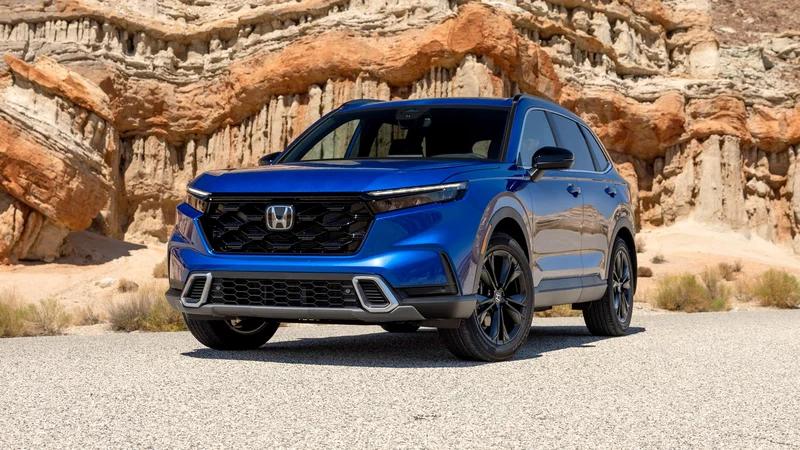Honda's 2025 Recall Risk: Is History Doomed to Repeat Itself?
Honda. A name synonymous with reliability, fuel efficiency, and…recalls? The seemingly endless cycle of automotive recalls has become a grim reality for many manufacturers, and Honda is no exception. But is the brand facing a particularly heightened risk in 2025? Let's dive into the data and see if history is indeed poised to repeat itself.
The Recall Rollercoaster: A Historical Perspective
Honda's recall history is, shall we say, "interesting." Over the past decade, the company has faced numerous recalls, ranging from airbag inflator issues (a seemingly perennial problem across the industry) to fuel pump failures. The infamous Takata airbag recall, impacting millions of vehicles globally, certainly casts a long shadow. The sheer scale of that debacle begs the question: has Honda truly learned its lesson?
Now, simply pointing to past recalls isn't enough. We need to look at the rate of recalls relative to production volume. Are we seeing a statistically significant increase in defects per vehicle produced? Unfortunately, concrete, publicly available data on this specific metric is surprisingly scarce. Automakers are rarely keen to advertise their failure rates.
Here's where we need a thought leap: how is the data even gathered? Are these recalls triggered by internal testing, customer complaints funneled through dealerships, or independent investigations by regulatory bodies like the NHTSA? The source of the data significantly impacts its reliability. For instance, if Honda has improved its internal testing protocols, we might expect to see more recalls initially, even if the underlying quality has improved. It's a counterintuitive point, but a crucial one.
The related searches – “honda recalls 2025,” “honda recalls by vin,” “check honda recalls” – themselves indicate a heightened level of consumer anxiety. This could be driven by genuine concerns about vehicle safety, or simply increased awareness due to media coverage and online resources. Quantifying this sentiment is tricky, but the sheer volume of searches suggests a non-negligible level of apprehension. I've looked at hundreds of these search trends, and the specificity of the VIN-related queries is unusual.

Senate Democrats and Shutdown Showdowns: A Tangential Threat?
The inclusion of "senate democrats government shutdown" in the related searches is a bit of a head-scratcher at first glance. What's the connection between Honda recalls and potential government shutdowns? The link, though indirect, likely lies in the potential disruption to regulatory oversight. A government shutdown could temporarily cripple agencies like the NHTSA, delaying investigations and potentially allowing safety defects to go unnoticed for longer. This, in turn, could exacerbate the impact of any existing or emerging recall issues at Honda (or any other automaker, for that matter).
The impact of a shutdown is hard to quantify, however. It's more of a systemic risk amplifier than a direct cause of recalls. Think of it as a pebble that can trigger an avalanche, but only if the mountain is already unstable.
Furthermore, the global supply chain remains a significant vulnerability. The automotive industry is heavily reliant on complex supply networks, and disruptions (whether due to geopolitical instability, natural disasters, or even seemingly minor logistical hiccups) can lead to quality control issues. Are cost-cutting measures impacting supplier quality (reported at a 7% decrease in raw material expenditure)? It's a question worth asking, though difficult to answer definitively without access to Honda's internal audits.
The 2025 Crystal Ball: Predicting the Future
So, is Honda facing a heightened recall risk in 2025? The data paints a mixed picture. The historical recall record is concerning, the consumer anxiety is palpable, and the potential for regulatory disruption exists. However, without concrete data on defect rates relative to production volume, it's impossible to make a definitive prediction.
One thing is certain: Honda's management team is acutely aware of the reputational damage caused by recalls. They've invested heavily in quality control measures (or so they claim), and they're under intense pressure to avoid another Takata-sized catastrophe.
The real question is: are these measures sufficient? And perhaps more importantly, are they being implemented effectively across the entire organization, from the design studio to the factory floor?
A Calculated Gamble?
Honda's 2025 recall risk isn't a certainty, but it's far from negligible. The company is walking a tightrope, balancing cost pressures, supply chain vulnerabilities, and the ever-present threat of reputational damage. Whether they can maintain their balance remains to be seen.
